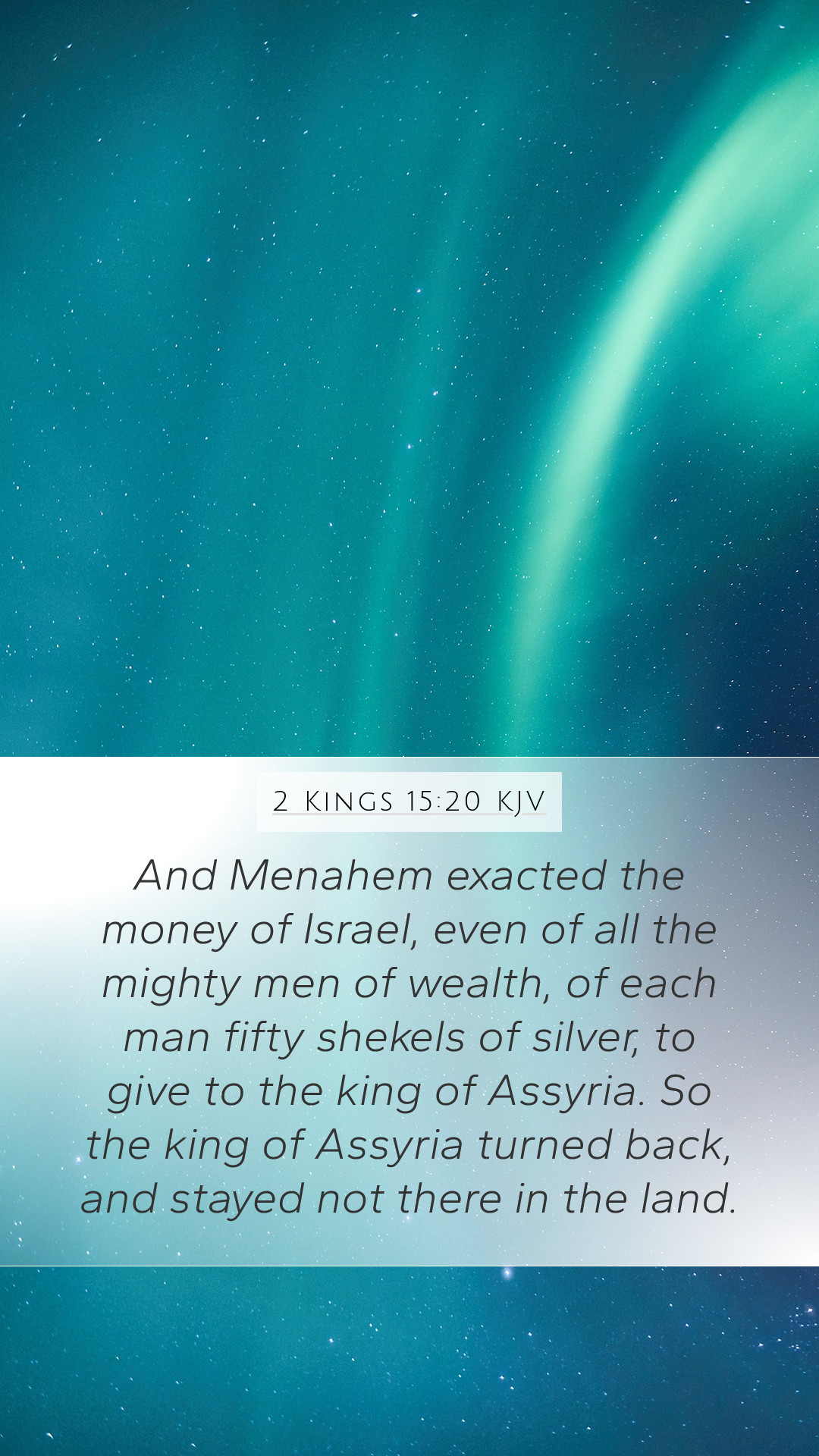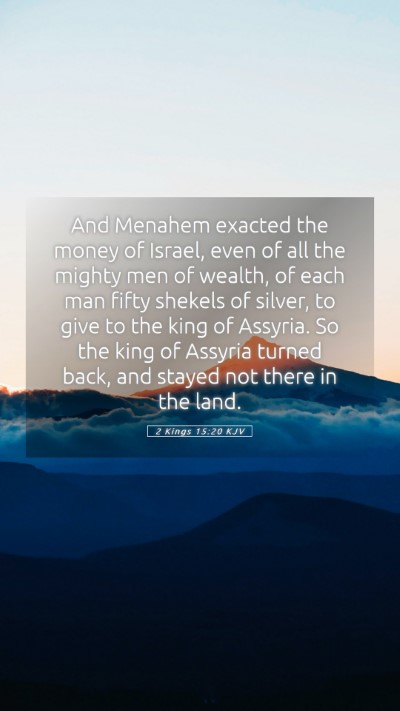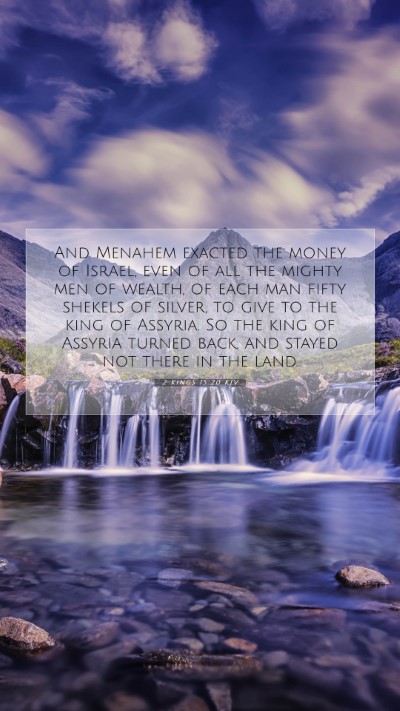Understanding 2 Kings 15:20
Verse: "And the rest of the acts of Menahem, and all that he did, are they not written in the book of the chronicles of the kings of Israel?" (2 Kings 15:20)
Bible Verse Analysis
The verse reflects on the reign of Menahem, a king of Israel, following the pattern seen in the historical accounts of various kings throughout the biblical narrative. Menahem’s actions, while not detailed here, are said to be recorded in the official records of Israel’s kings, suggesting a systematic approach to documenting history during that period.
Historical Context
Menahem ruled during a time of political instability and was known for his violent means of securing power. Understanding the chaotic environment of Israel at this time provides insights into the nature of his reign. The mention of historical records indicates an acknowledgment of official narratives that were likely kept by royal scribes, providing a basis for understanding the significance of Menahem's leadership.
Commentary Insights
- Matthew Henry: Highlights that the brevity of mention may indicate the lack of significant or godly accomplishments during Menahem's rule. The comment implies that true merit for a king should be measured by God's standards rather than earthly success.
- Albert Barnes: Points out that this reference serves to direct the reader’s attention to the historical records, emphasizing that the deeds of kings are not merely anecdotal but carry weight in understanding their impact on Israel's fate.
- Adam Clarke: Notes the importance of consulting these chronicles as they provide a fuller context for biblical narratives and help ascertain the faithfulness of Israel's kings in relation to God's covenant.
Bible Study Insights
This verse serves as a reminder of the importance of historical context when studying biblical accounts. It encourages readers to seek deeper meanings and interpretations of scripture beyond the surface level.
Applications for Daily Life
In applying the lessons from 2 Kings 15:20, individuals can reflect on how leadership and the recording of one’s actions can influence history and legacy. It challenges us to consider what “chronicles” we are writing with our lives and how they align with moral and spiritual standards.
Related Bible Cross References
- 1 Kings 14:19 - The acts of the kings of Israel are often summarized in similar ways.
- 2 Kings 15:1-2 - Provides context to Menahem's rise to power and the circumstances surrounding his reign.
- 1 Chronicles 9:1 - Discusses the importance of records in maintaining the history of Israel.
- 2 Kings 15:27 - Discusses a later king's reign, linking the history of leadership in Israel.
- 2 Chronicles 27:7 - Provides further commentary on the legacy of kings in Judah and Israel.
Conclusion
2 Kings 15:20 serves not only as a historical note but also invites readers to explore profound themes of leadership, legacy, and moral accountability within Biblical texts. By studying commentaries and cross-references, one gains a fuller understanding of each verse’s implications and applications in both ancient and contemporary contexts.
Keywords
Understanding Scripture, Bible verse meanings, Bible verse commentary, Bible study insights, and Biblical exegesis are all critical in unlocking the full depth of meanings found within passages such as 2 Kings 15:20.


